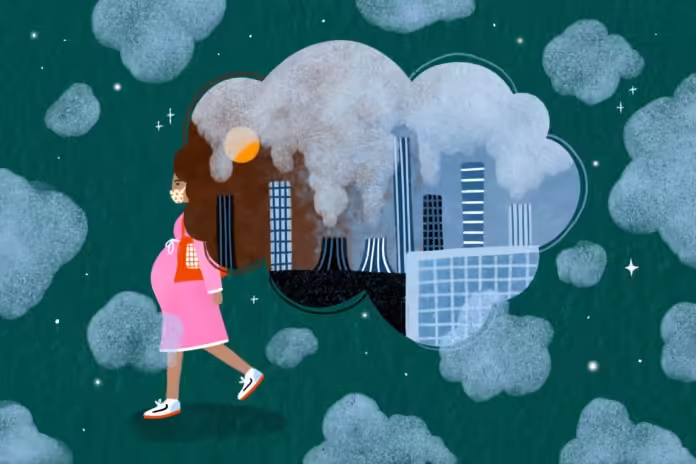The risks of miscarriages, premature births, and threats to mothers caused by climate change are being neglected in global climate action plans, according to a new report aimed at decision-makers for the Cop29 summit in November. The report, created by 80 scientists from 45 countries, brings attention to various dangers linked to the climate crisis, including the collapse of the Amazon rainforest, disruption of crucial Atlantic Ocean currents, and harm to critical infrastructure in cities.
Planetary-Scale Challenges
According to Professor Johan Rockström, co-chair of Earth League, the world faces serious planetary challenges.
“The world faces planetary-scale challenges, from the rise of methane emissions to the vulnerability of critical infrastructure,” he said.
The report highlights that increasing heat, ocean instability, and the potential collapse of the Amazon rainforest could push parts of the planet beyond habitable limits.
“Yet it also provides clear pathways and solutions, demonstrating that with urgent, decisive action, we still can avoid unmanageable outcomes,” Rockström added.
The report follows a stern message from UN Secretary-General António Guterres, who warned, “We’re playing with fire, but there can be no more playing for time. We’re out of time.” He pointed out that global heating is intensifying extreme weather events, leading to destructive hurricanes, record-breaking floods, and wildfires. Guterres emphasized the urgent need to reduce fossil fuel reliance.
Climate’s Impact on Maternal and Infant Health
A significant part of the report focuses on how rising temperatures and extreme weather events are affecting maternal and infant health. Increasing climate extremes are contributing to a rise in miscarriages, premature births, and even cognitive issues in newborns. For example, a study in India showed that pregnant women experiencing heat stress faced double the risk of miscarriage. Another study in California found that long-term heat exposure was linked to higher risks of stillbirths and preterm births.
Flooding also contributes to over 100,000 lost pregnancies each year across 33 countries in South and Central America, Asia, and Africa. Women from lower-income backgrounds or with less education are at greater risk. Rising temperatures are even linked to an increase in intimate partner violence, as indicated by research in South Asia.
However, only 27 out of 119 national climate action plans submitted to the UN include policies addressing these issues, making it a considerable “blind spot” in climate planning.
Breaking Point for Healthcare and Essential Services
Professor Jemilah Mahmood from the Sunway Centre for Planetary Health in Malaysia highlighted that heatwaves and other extreme events disrupt healthcare services, sanitation, and food supplies, worsening conditions for pregnant women.
“Preparedness for heat extremes, including early warning systems, must be a priority,” Mahmood urged. “Without action, the consequences could be catastrophic.”
Global warming threatens to drive billions out of the “climate niche”—habitable temperatures that humanity has thrived in for thousands of years. Emissions from fossil fuels continue to rise, pushing land and ocean temperatures to record levels. El Niño events, which can cause droughts and floods, are also becoming stronger, with the potential to cause damage estimated at $100 trillion by the end of the century.
Ocean Currents, Amazon Rainforest, and Methane Emissions
The Atlantic Meridional Overturning Circulation, a system of ocean currents vital to global climate, is slowing down. The report warns that if this current collapses, it would bring catastrophic consequences for societies worldwide. Similarly, the Amazon rainforest’s resilience is diminishing, increasing the risk of collapse. If the Amazon switches from absorbing carbon emissions to releasing them, it would accelerate global warming further.
The report calls for progress on Brazil’s proposed $250 billion-a-year Tropical Forests Forever fund, stronger law enforcement against illegal activities in the Amazon, and more support for Indigenous communities.
Methane, a greenhouse gas that warms the planet faster than carbon dioxide, is also rising quickly. Although cost-effective solutions exist to reduce methane emissions from fossil fuel production, enforceable policies are largely absent. Methane control is another critical issue that Cop29 leaders need to address.
Infrastructure Not Prepared for Climate Change
Most of today’s infrastructure energy, water, healthcare, communications, and waste systems was designed for a more stable climate, the report states. With worsening extreme weather, significant funding is required to adapt infrastructure, especially in developing countries. Artificial intelligence, the report suggests, could help improve climate adaptation by creating more robust and efficient solutions.
Funding and Fairness in Climate Policy
One of Cop29’s main goals is to set a new target for climate financing, with many countries pushing for a $1 trillion annual commitment to reduce emissions and address climate-related damage.
The report also stresses the need for fairness in climate policies. Wealthier countries and individuals contribute far more to emissions than poorer ones, and policies that feel unfair can lead to social unrest, such as the “yellow vest” protests in France over fuel tax hikes.
Professor Joyashree Roy of the Asian Institute of Technology in Thailand warned, “Ignoring citizens’ readiness and needs when designing and implementing climate policies will ultimately lead to many missed opportunities.”
In conclusion, the report underscores the urgency of taking action to address maternal health impacts, protect vital ecosystems like the Amazon, and ensure fairness in climate policies. With a blend of urgent warnings and actionable solutions, scientists hope Cop29 will lead to meaningful progress in the fight against climate change.


